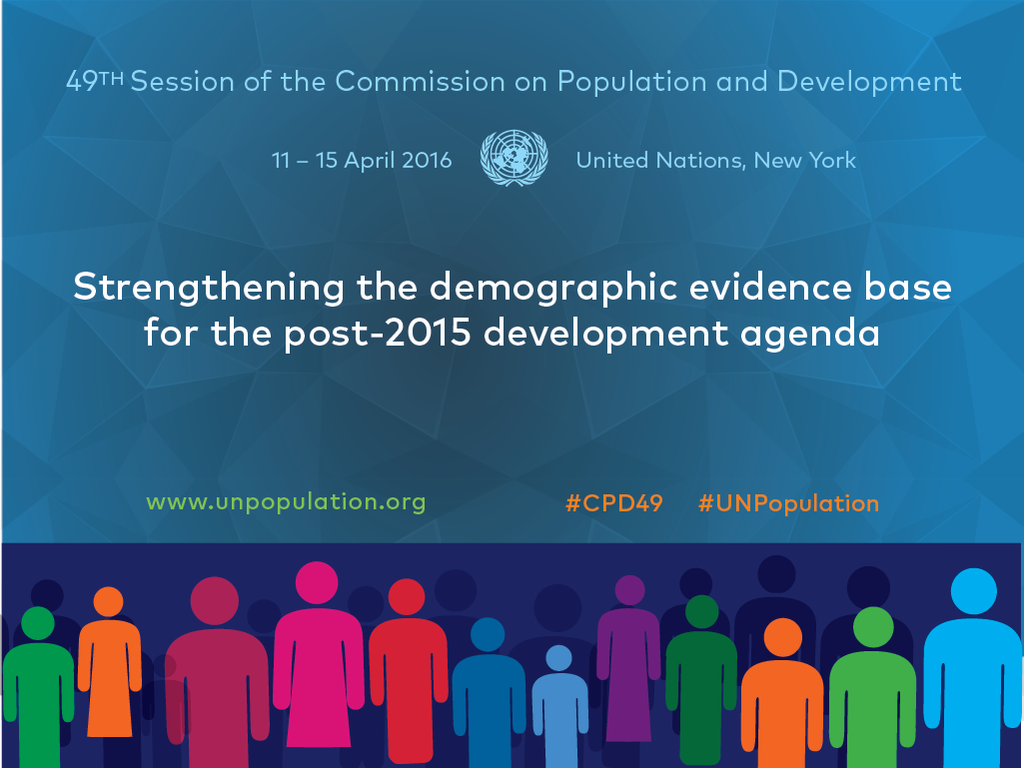
Demographic data are fundamental to developing and assessing social and economic policies, including those focused on poverty reduction, and they provide an essential evidence base for national and local policymakers. The need for high-quality, timely, reliable and relevant demographic data has gained prominence in light of the recent adoption of the 2030 Agenda for Sustainable Development, in which population-related issues underpin many of the goals and targets.
It is therefore quite timely that the theme of the Commission on Population and Development in 2016 is Strengthening the Demographic Evidence Base for the post-2015 Development Agenda.
The upcoming session of the Commission will consider this topic from 11 to 15 April at UN Headquarters in New York. It is expected that the discussions will focus on the critical importance of demographic data and analysis for achieving sustainable development and for ensuring that no one is left behind, and on how the demographic evidence base can be strengthened to help achieve the objectives of the 2030 Agenda.
Discussions and negotiations on the annual theme, informed by two recent reports of the Secretary-General, will capture the attention of members of the Commission and of a wide range of stakeholders, including many from civil society. In addition, there will be keynote presentations and panel discussions, as well as a variety of side-events, which will enhance and enrich the discussions.
To read more, please visit UNDESA Voice.
For more information about the 2016 Commission on Population and Development, please visit: bit.ly/CPD_49
Photo: UNDESA
 Welcome to the United Nations
Welcome to the United Nations